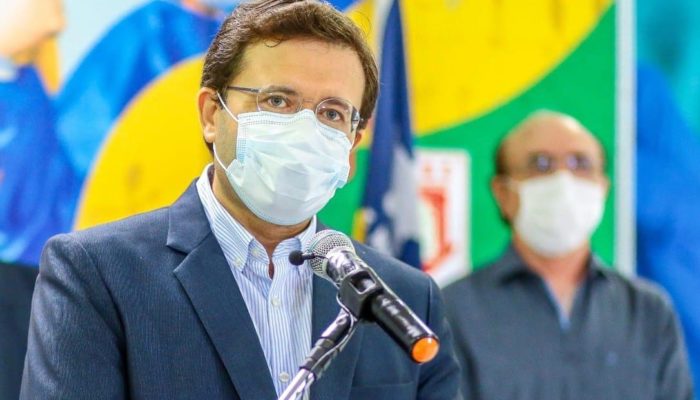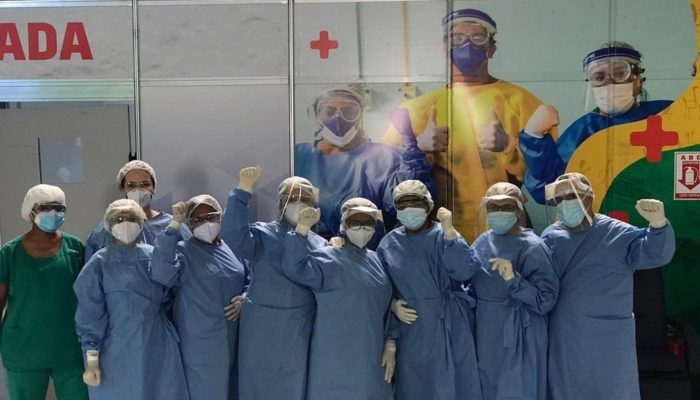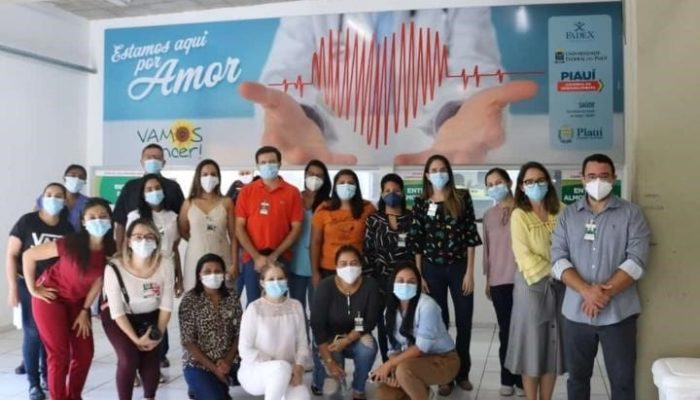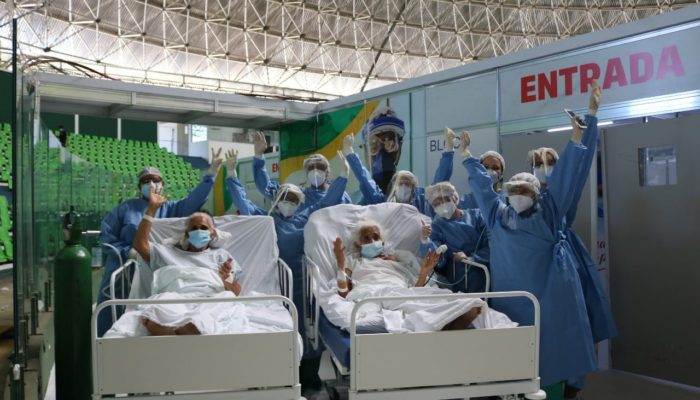Research Project led by Prof. Joel Rodrigues brings together scientists from various areas and includes a State Temporary Hospital for COVID-19, in Piauí, Brazil
Scientists around the world are focused on fighting the coronavirus. The challenges are innumerable, especially since it is a disease that stills little known and whose information is not solid yet. Given this scenario, professors and researchers from different areas of knowledge at the Federal University of Piauí (UFPI), Brazil, led by Prof. Joel Rodrigues (Fellow, IEEE), created a research and innovation project that involves the administration of a field hospital in the State of Piauí, installed at the capital, Teresina, an unprecedented fact in Brazil.
The “Research and Innovation Project in Public Health Management: Strategies for Facing the Covid-19 Pandemic”, led by Joel Rodrigues, that works in the area of Computer Engineering, Communications, Internet of Things and eHealth Technologies, and includes the areas of Medicine, Law, Pharmacy, Electrical Engineering, Administration, Mathematics, and Computer Science.
The Project is a response to the needs of the Piauí State Government, which, anticipating the cases increasing of Covid-19, decided to install a field hospital to reinforce the number of hospital beds available to the population and for being able to receive patients from all over the state. Thus, an agreement between the Federal University of Piauí (UFPI), Brazil; the Cultural and Research Promotion, Teaching, Extension, and Innovation Foundation (FADEX); and the Piauí State Health Secretary (SESAPI). FADEX is a support foundation that provides technical and administrative provision for the project execution and it is funded by SESAPI.
Unlike other Brazilian states, which hired outside companies to manage field hospitals, in Piauí, an innovative project that, in addition for taking care of the management part, also meets other needs, such as conducting research for better understand the virus and monitoring cases for scientific purposes. The State Field Hospital opened last May 2020 and it is expected to last 4 months, according to the evolution forecasts of COVID-19 in the State.
The fact of having researchers from various scientific areas adds a lot to society. Medical researchers, for example, directly address COVID-19’s clinical treatment protocols. In mathematics, intelligent models are used to perform predictions about the evolution of the disease in population, which is of great value for public managers, who need to make decisions regarding the use of resources and containment measures. Such data were of fundamental importance to prevent the collapse in the health system in Piauí.
In the technology area, the construction of pulmonary ventilators and the use of artificial intelligence to carry out diagnostic studies based on imaging exams and clinical data of patients are performed. The development of transparent masks to facilitate communication, through the observation of lip movement, especially concerning hearing impaired and facilitating the interpersonal communication.
The research team is also working in the legal and governance area, which encompasses law and hospital administration and management.
The inclusion of the State Field Hospital in the Project turns research more efficient because it is a storehouse of the disease data. In the other hand, it ensures a more transparent and optimized administration for society. It is worth mentioning that the hospital has a website daily updated, with information about hospitalizations, discharges, and deaths. In addition to information on the procedures adopted, graphics about the patients evolution, human resources, and details of financial execution are presented. The hospital’s website, the only one in a field hospital unit with these characteristics, can be assessed here (in Portuguese): http://www.hcepiaui.org.
Thanks to the work of UFPI university researchers, it was possible to materialize such a complete system to combat the pandemic and saving lives. The hospital has 103 beds, including clinical and stabilization beds, and the proof that all the effort is obtaining good results comes from the fact that, for a pandemic disease, more than 90% of the admitted patients have already left the hospital and the deaths are about 1.5%. This is a real example of engineers and other scientists working hard, along with more 230 professionals, during this pandemic period for saving lives against COVID-19





